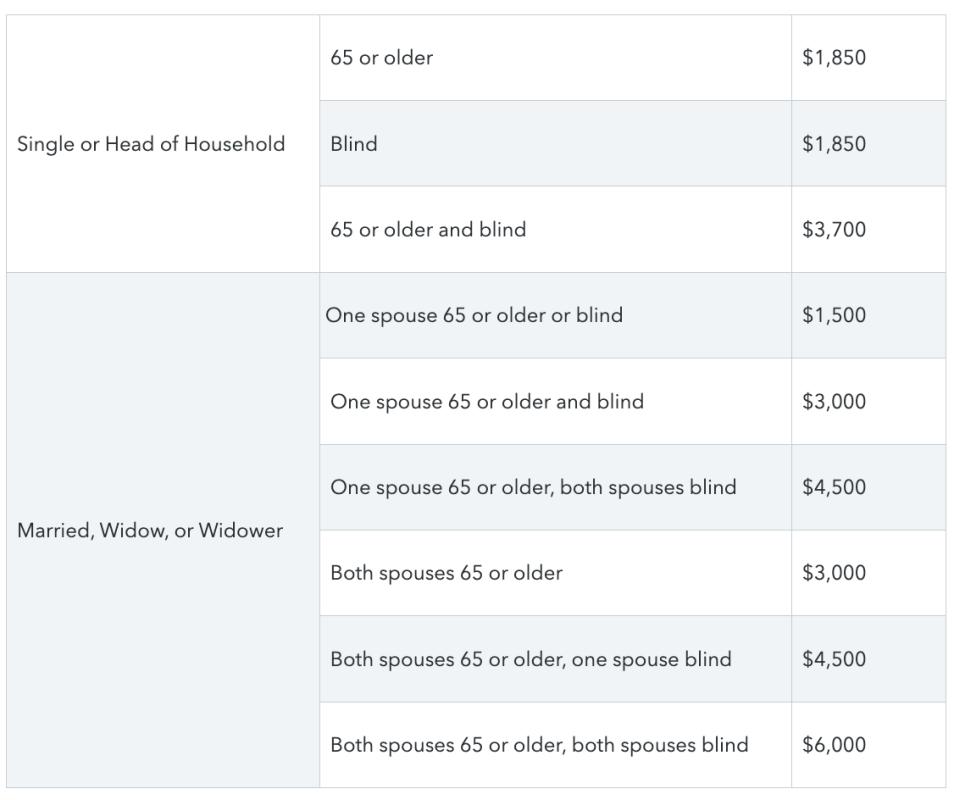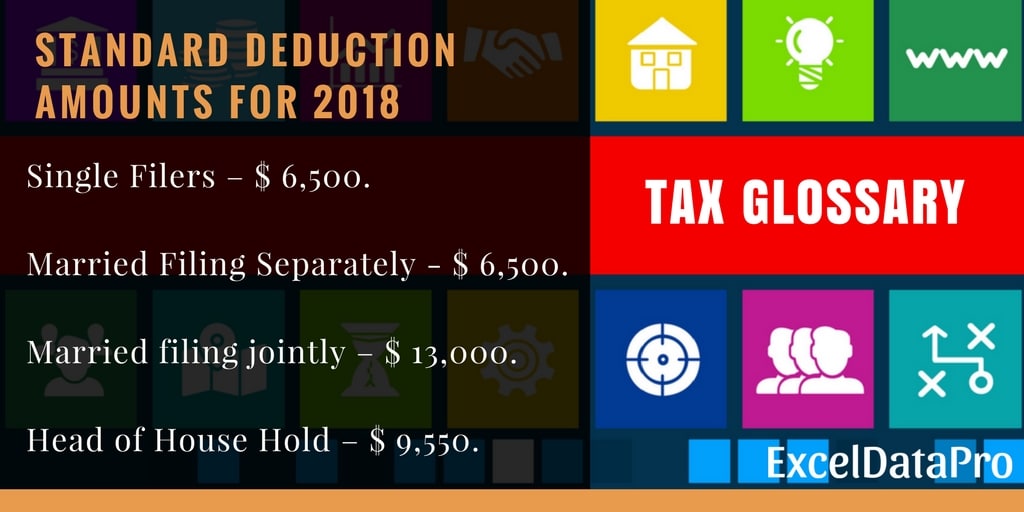A clear guide to how the FEIE Standard Deduction applies for Americans overseas
Everything about the Foreign Earned Income Exclusion: Maximizing Your Requirement Deduction Benefits
The Foreign Earned Revenue Exclusion (FEIE) provides an important chance for U.S. citizens living abroad to lessen their tax obligations. Understanding the qualification criteria is essential for those looking for to take advantage of this exclusion. Furthermore, declaring the common deduction can enhance general tax obligation benefits. However, handling this procedure entails cautious attention to detail and an understanding of typical challenges. Exploring these elements can supply clearness and take full advantage of prospective tax obligation advantages.
Recognizing the Foreign Earned Earnings Exclusion (FEIE)
The Foreign Earned Earnings Exemption (FEIE) allows U.S. people and resident aliens functioning abroad to leave out a section of their foreign earnings from federal income tax obligation. This arrangement works as a monetary alleviation system, enabling migrants to keep a larger share of their income gained in foreign nations. By lowering taxed revenue, the FEIE assists relieve the problem of dual taxation, as individuals may likewise be subject to taxes in their host countries. The exemption applies just to made revenue, that includes earnings, salaries, and expert charges, while passive revenue and investment gains do not certify. To profit from the FEIE, individuals have to file specific forms with the IRS, describing their foreign incomes and residency - FEIE Standard Deduction. Comprehending the subtleties of the FEIE can considerably influence monetary preparation for U.S. people living overseas, making it essential for expatriates to remain informed concerning this beneficial tax obligation provision
Eligibility Criteria for the FEIE
To receive the Foreign Earned Income Exclusion (FEIE), people should meet certain eligibility criteria. This includes rewarding residency needs, passing the physical presence test, and establishing a tax home in an international country. Each of these elements plays a crucial role in establishing whether one can gain from the exclusion.
Residency Demands
Satisfying the residency needs is necessary for people looking for to get the Foreign Earned Earnings Exemption (FEIE) To be eligible, taxpayers must establish a bona fide house in a foreign country or countries for a nonstop period that typically spans an entire tax year. This demand stresses the necessity of a deeper link to the international area, moving beyond plain physical visibility. People have to show their intent to stay in the international nation and have established their living situation there. Factors such as the length of stay, kind of housing, and local community involvement are thought about in figuring out residency. Fulfilling these requirements is important, as failure to do so may disqualify one from gaining from the FEIE.
Physical Presence Test
Establishing eligibility for the Foreign Earned Earnings Exemption (FEIE) can also be achieved through the Physical Presence Examination, which calls for people to be literally present in a foreign nation for at the very least 330 complete days throughout a consecutive 12-month period. This test is beneficial for those who might not meet the residency requirement yet still stay abroad. The 330 days need to be full days, indicating that any type of day spent in the USA does not count towards this overall. It is crucial for people to preserve accurate documents of their travel days and places to support their insurance claims. Successfully passing this test can considerably minimize taxable revenue and improve economic results for expatriates.
Tax Obligation Home Place
Tax obligation home location plays a vital function in figuring out qualification for the Foreign Earned Earnings Exclusion (FEIE) To qualify, a private should establish a tax obligation home in an international country, which indicates their key business is outside the USA. This stands out from a plain house; the specific have to perform their work in the international nation while keeping a substantial link to it. The internal revenue service requires that the taxpayer can demonstrate the intent to remain in the foreign place for an extended period. Furthermore, maintaining a home in the U.S. can make complex qualification, as it might recommend that the individual's true tax obligation home is still in the United States. Recognizing this criterion is critical for maximizing FEIE benefits.
Exactly how to Declare the FEIE on Your Income Tax Return
Asserting the Foreign Earned Income Exclusion (FEIE) on an income tax return calls for mindful interest to detail and adherence to details internal revenue service guidelines. Taxpayers should initially verify eligibility by meeting either the bona fide home examination or the physical presence test. When qualification is confirmed, they should complete internal revenue service Kind 2555, which information international made earnings and appropriate info concerning their tax obligation home.
It is necessary to report all international earnings properly and maintain suitable documentation to sustain cases. Taxpayers must also recognize the optimal exemption restriction, which goes through annual adjustments by the IRS. Declaring Kind 2555 together with the yearly income tax return enables taxpayers to exclude a part of their international profits from U.S. tax. Finally, it is next advisable to consult a tax professional or IRS sources for updated info and advice on the FEIE procedure, guaranteeing compliance and maximization of possible benefits.
The Standard Reduction: What You Required to Know
Exactly how does the typical reduction influence taxpayers' general financial scenario? The conventional deduction functions as a significant tax advantage, minimizing gross income and potentially reducing tax obligation obligations. For the tax year 2023, the common reduction is established at $13,850 for solitary filers and $27,700 for couples filing jointly. This deduction streamlines the declaring procedure, as taxpayers can select it rather than making a list of reductions, which needs comprehensive record-keeping.

Taxpayers gaining foreign revenue may still declare the typical reduction, benefiting from minimized gross income even while using the Foreign Earned Revenue Exclusion (FEIE) Nevertheless, it is vital to keep in mind that the typical reduction can not be integrated with itemized reductions for the exact same tax year. Consequently, understanding the standard deduction permits taxpayers to make informed decisions concerning their tax obligation approaches, taking full advantage of readily available advantages while making sure conformity with IRS policies
Methods for Optimizing Your Deductions
Making best use of deductions under the Foreign Earned Income Exclusion needs a clear understanding of gained earnings limitations and the benefits of declaring real estate exclusions. In addition, making use of Form 2555 properly can enhance the possibility for considerable tax obligation cost savings. These approaches can significantly influence the overall tax obligation liability for expatriates.
Understand Gained Income Limitations
While many expatriates look for to lower their tax worry, comprehending the gained revenue limits is crucial for efficiently leveraging the Foreign Earned Revenue Exclusion. The Irs (INTERNAL REVENUE SERVICE) sets certain limits that determine the optimum quantity of foreign made earnings eligible for exemption. For the tax obligation year 2023, this limit is $120,000 per certified person. Surpassing this limit might result in taxation on the earnings above the limitation, lessening the advantages of the exclusion. To take full advantage of reductions, migrants need to maintain exact documents of their international made revenue and assess their eligibility for the exclusion annually. Strategic planning around these limits can considerably boost tax obligation cost savings, enabling expatriates to enhance their monetary circumstance while living abroad.
Declaring Housing Exclusion Perks
Lots of expatriates neglect the potential benefits of declaring the Housing Exemption, which can substantially minimize their gross income. This exemption allows people living abroad to subtract particular real estate costs from their gross earnings, making it simpler to meet monetary obligations without sustaining significant tax liabilities. To maximize this benefit, expatriates need to confirm they qualify based upon their residence and employment conditions. Additionally, recognizing eligible expenses-- such as lease, utilities, and upkeep-- can improve the overall reduction. Keeping comprehensive documents of these prices is essential for confirming insurance claims. By purposefully navigating through the Housing Exclusion, expatriates can significantly a knockout post lower their tax obligation concern and preserve more of their earnings while living overseas, inevitably enhancing their financial well-being.
Make Use Of Kind 2555 Effectively
Making use of Kind 2555 successfully can greatly improve the economic navigate here benefits readily available to migrants, especially after benefiting from the Housing Exemption. This type enables individuals to assert the Foreign Earned Income Exclusion, which can substantially reduce gross income. To take full advantage of reductions, migrants ought to validate they fulfill the credentials, including the physical presence examination or the bona fide residence examination. It is crucial to properly report all international made earnings and to maintain thorough records of eligibility. In addition, using the Real estate Exemption in tandem with Form 2555 can further decrease overall tax obligation liability. By understanding the intricacies of these forms, migrants can optimize their tax obligation circumstance and maintain even more of their hard-earned income while living abroad.
Common Risks to Stay Clear Of When Declaring Your Tax Obligations Abroad

Regularly Asked Inquiries
Can I Assert Both FEIE and the Foreign Tax Credit History?
Yes, a person can assert both the Foreign Earned Income Exclusion (FEIE) and the Foreign Tax Credit (FTC) Nonetheless, they should assure that the same revenue is not made use of for both advantages to prevent dual advantages.
What Takes place if I Go Beyond the FEIE Earnings Limit?
Exceeding the Foreign Earned Income Exclusion (FEIE) earnings limit causes the ineligibility for the exclusion on the excess quantity. This can result in gross income in the USA, needing suitable tax filings.
Exist Any Type Of State Tax Obligation Effects for FEIE?
State tax obligation effects for the Foreign Earned Revenue Exclusion (FEIE) differ by state. Some states may tax international revenue while others comply with federal exemptions, making it important for individuals to speak with state-specific tax guidelines for clarity.

How Does FEIE Impact My Social Safety Benefits?
The Foreign Earned Income Exclusion (FEIE) does not directly influence Social Protection benefits. Nonetheless, income omitted under FEIE may affect the estimation of ordinary indexed monthly earnings, possibly affecting future advantages.
Can I Revoke My FEIE Election After Asserting It?
Yes, a person can revoke their Foreign Earned Income Exemption (FEIE) political election after declaring it. This retraction has to be performed in composing and submitted to the internal revenue service, adhering to details standards and due dates.
Comprehending the Foreign Earned Earnings Exemption (FEIE)
The Foreign Earned International Exclusion EarningsFEIE) allows U.S. citizens united state resident aliens working abroad to exclude a leave out of section foreign earnings from federal income governmentRevenue Taxpayers gaining foreign income might still declare the common deduction, profiting from minimized taxable revenue even while using the Foreign Earned Earnings Exclusion (FEIE) Making best use of reductions under the Foreign Earned Income Exemption calls for a clear understanding of gained income restrictions and the benefits of asserting housing exclusions. While many migrants look for to minimize their tax obligation worry, recognizing the made revenue limitations is essential for properly leveraging the Foreign Earned Income Exemption. Exceeding the Foreign Earned Earnings Exemption (FEIE) income limit results in the ineligibility for the exemption on the excess amount.